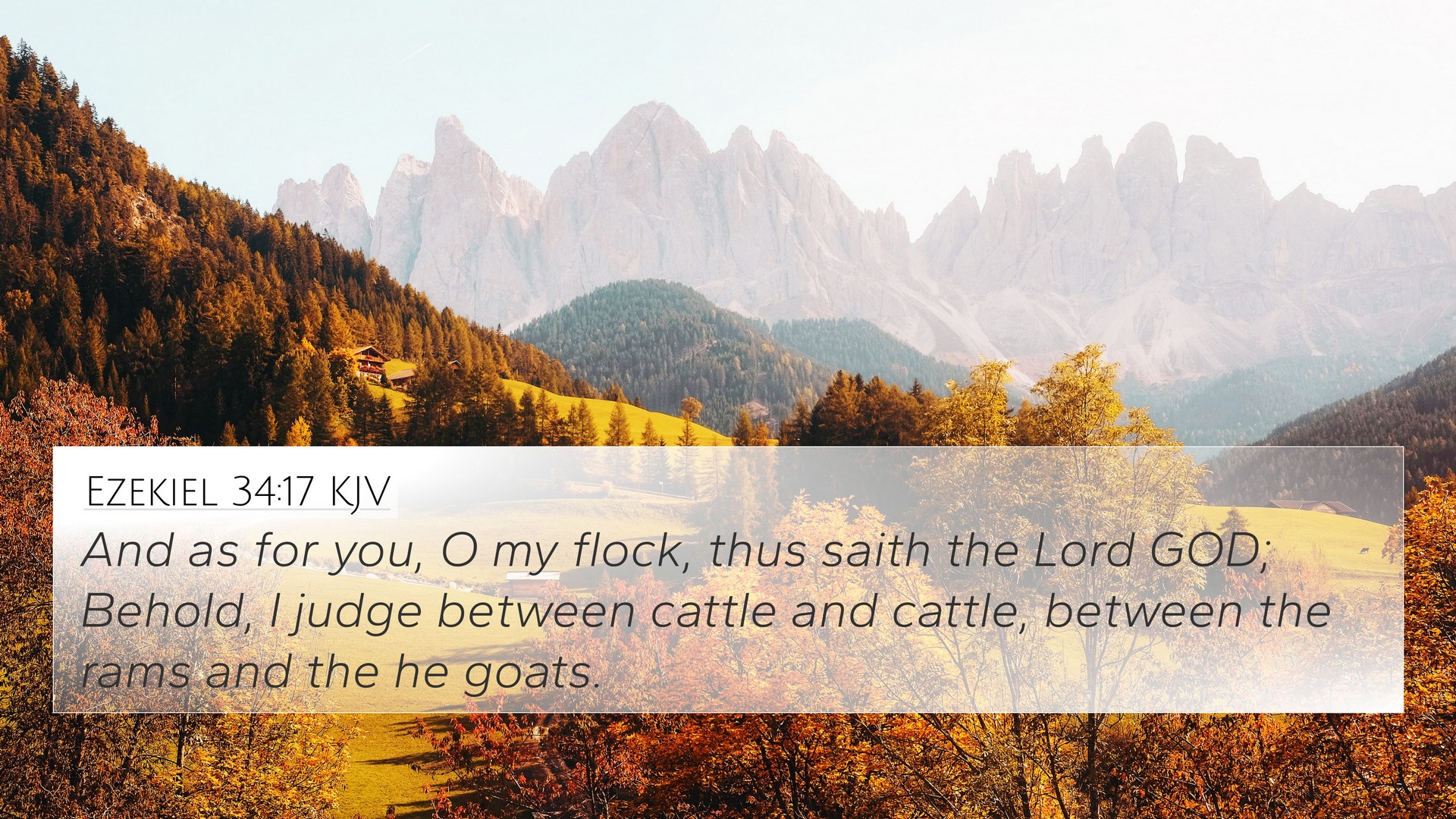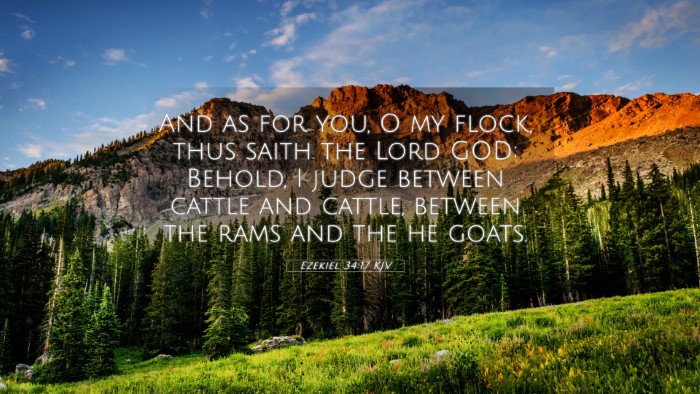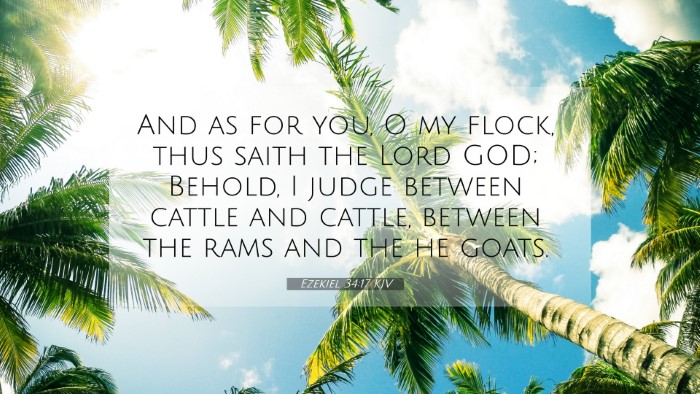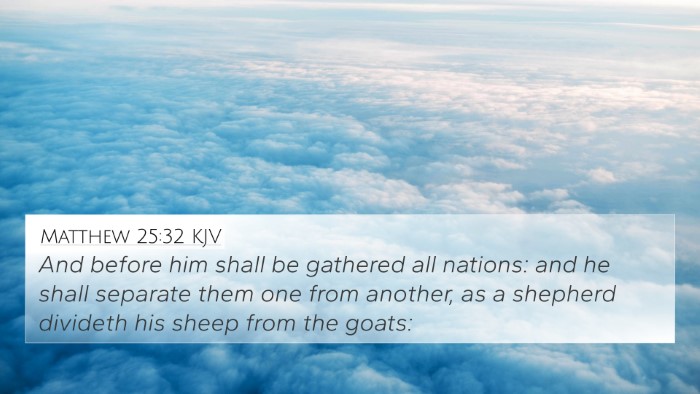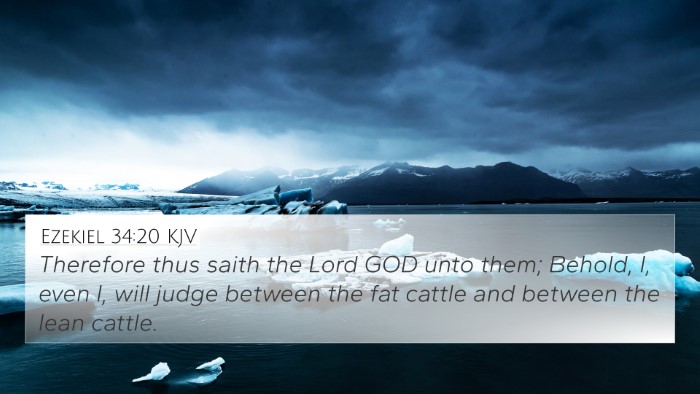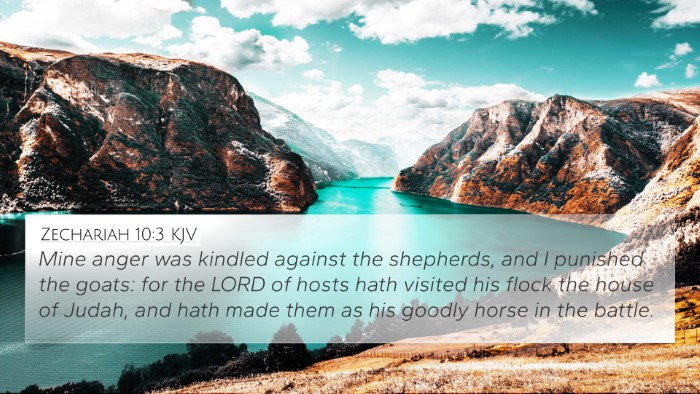Ezekiel 34:17 Explained
Bible Verse: Ezekiel 34:17 - "As for you, my flock, thus says the Lord God: Behold, I judge between sheep and sheep, between rams and male goats."
Summary of Interpretation
The verse emphasizes God’s role as a righteous judge who differentiates between His people as a shepherd would differentiate between sheep. This reflects His concern for justice within His flock and His authority to guide and protect them.
Contextual Background
Ezekiel prophesied to a people in captivity, using the metaphor of shepherding to illustrate leadership. The chapter addresses the failures of Israel's leaders (the shepherds) and contrasts it with God's ultimate role as the good shepherd.
Commentary Insights
- Matthew Henry: Henry interprets this verse as highlighting God's justice and His commitment to ensuring that His flock is treated with fairness. He notes that the judgment of God is impartial and stern, reflecting His deep care for the well-being of His people.
- Albert Barnes: Barnes emphasizes the significance of the separation between the sheep, rams, and male goats, indicating that God makes distinctions in how He cares for different groups. He suggests that this verse points to the divine assessment of behaviors and attitudes within the community.
- Adam Clarke: Clarke discusses the imagery of shepherding and its theological implications, suggesting that God, as the supreme shepherd, holds leaders accountable for their duties and ensures that justice prevails among His people.
Biblical Cross-References
Understanding Ezekiel 34:17 benefits from cross-referencing other biblical texts to see thematic connections and deepen interpretation:
- Jeremiah 23:1-4: This passage warns against the negligent shepherds of Israel and God's promise to gather His people back to His fold.
- John 10:11-14: Jesus identifies Himself as the good shepherd, emphasizing the protective and sacrificial nature of His leadership over His flock.
- Psalm 23:1-3: The imagery of the Lord as a shepherd underscores His guidance and provision for His people.
- Ezekiel 34:10: A continuation from the same chapter where God declares His intent to shepherd His people Himself.
- Matthew 25:32-33: This text discusses the separation of the sheep and the goats, aligning with the theme of judgment and distinction between God's people.
- 1 Peter 5:2-4: An epistle urging church leaders to be faithful shepherds, echoing the same concern for justice and pastoral care.
- Isaiah 40:11: The imagery of God as a shepherd provides comfort and illustrates His nurturing role over His people.
Thematic Connections
The themes present in Ezekiel 34:17 resonate throughout the Bible and showcase God’s ongoing dialogue within scriptures. These connections can be explored through:
- Shepherd Imagery: Repeatedly in Scripture, God is portrayed as a shepherd, offering guidance, protection, and nurture.
- Judgment and Justice: The themes of God’s judgment appear not only in the prophetic books but also in the teachings of Jesus, connecting the Old and New Testaments.
- Community Accountability: Leaders are held to a higher standard, a recurring emphasis in both the Old and New Testament texts.
Applications for Study
For those looking to gain a deeper understanding of Ezekiel 34:17 and its surrounding context, consider the following:
- Utilize a Bible concordance to locate themes of shepherding and justice throughout the Scriptures.
- Engage in Bible cross-reference guides to see links between prophetic texts and New Testament fulfillment.
- Explore cross-referencing methods to identify both thematic and narrative connections between passages.
Conclusion
Through careful study and cross-referencing, Ezekiel 34:17 emerges as a profound statement on God's nature as a just shepherd who cares for His flock. The connections between this verse and others across the Biblical narrative enrich our understanding of God’s commitment to His people and the principles He upholds.
